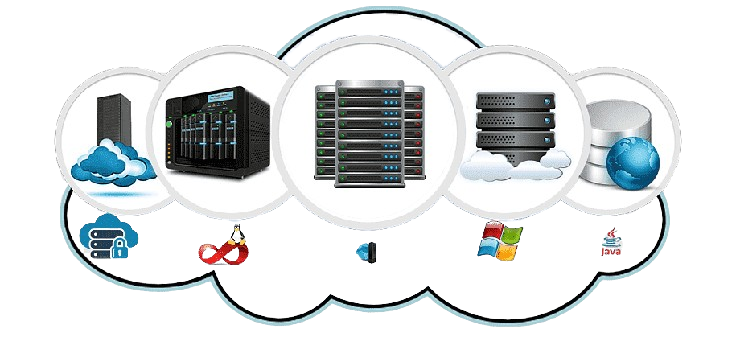We are on a mission to Create Website for every Business in India and across the Globe.
What is server hosting?
Server hosting is an IT service, typically offered by a cloud service provider that provides remote access to off-premises virtual or physical servers and associated resources for a monthly subscription or usage-based price.
Server hosting lets IT teams provision and start by using application and data servers. But without the up-front cost, delays, and labor of purchasing, setting up, managing, and maintaining physical server hardware themselves, onsite.
Features of Company Website Designing Services
We are the core website design company with team of company web designers as per client requirements.
- Creative website
- Fast Loading website Speed
- Free website Maintenance
- Low Cost web design
- 5 Business Email Ids
- SEO Friendly website
- 24/7 website Support
- User Friendly UI/UX
Why use server hosting?
Today, organizations of all sizes use server hosting for all kinds of workloads—everything from development and testing, to application delivery, to backup and disaster recovery. Compared to purchasing and managing servers on site, server hosting offers the following:
- Faster server deployment and application delivery: While purchasing, installing, and configuring a server onsite can take weeks. A cloud service provider can provision, configure, and deliver a hosted application or data server in minutes. Enabling you to bring the solutions that are powered by the server to market faster.
- No capital expenditures; predictable ongoing costs: Instead of paying thousands for computer and hardware—a depreciating asset—with server hosting, you pay a predictable monthly fee or usage rate. The fee covers not only use of the CPU, storage, networking, and other IT resources, but also power, cooling, redundancy to ensure high availability, and 24 x 7 management of the hardware and infrastructure.
- Simple, responsive, inexpensive scaling: With onsite server hardware, scalability means overprovisioning servers to account for spikes (which can be wasteful) and adding physical capacity as you grow (which is slow and expensive). With server hosting, you can quickly scale up or down as needed for a nominal change in your subscription or usage cost.
- Responsive website design
- Quick Delivery
- Yearly website maintenance services
- SSL Certificate

Types of server hosting
While smaller variations exist, server hosting offerings fall into three general categories:
Shared server hosting
In shared hosting—the most basic and cost-effective form of server hosting—the resources of one physical server are virtualized and made available to multiple tenants (users or company accounts) in equal proportions. Shared hosting is ideal for basic, personal websites and web apps that have little traffic, few technical requirements, and limited performance or security requirements.
But, because all tenants are allocated a finite amount of an individual server’s capacity, providers do not allow websites to scale beyond a certain limit. And shared hosting is the server hosting model most susceptible to “noisy neighbors”—tenants whose applications unexpectedly consume more than their share of resources, causing performance problems for other tenants. For more information about shared hosting, see “What is Cloud Hosting?” and “Web Hosting: An Introduction.”
Get a Website Design Package with Web Hosting and Email Ids. Call/WhatsApp :



Our Recent Website Designing Work
Pleasure of working with Startups, MSMES’s, MNC’s to large Corporates. Delivered stunning web design work.










VPS hosting
VPS (virtual private server) hosting offers a next-level multi-tenant hosting—each tenant shares some, but not all, of the resources of a single hardware server and gets a little more control over the hosting environment. Each VPS runs its own operating system (OS) and applications, and it reserves its own portion of the machine’s resources (memory, computing, and so on).
VPS provides more control over system specifications, guest operating systems, and the overall software stack. It’s also the most easily and affordably scalable form of server hosting. Making it an excellent choice for e-commerce systems, email servers, CRM, and other applications that typically bear moderate or spiky traffic.
Dedicated server hosting
Dedicated server hosting is single-tenant hosting—the server has exclusive access ALL the resources of a single hardware server. Compared to the other forms of hosting listed above, dedicated hosting provides the greatest level of isolation from other servers and customers who are hosted by the cloud or IT service provider. You can choose among three dedicated hosting models:
- A dedicated host provides sustained single-tenant access to an entire hardware server and all the software that is installed on it. This model provides the maximum amount of hardware flexibility, transparency, and control over workload placement, and it also offers some advantages for hosting bring-your-own license software.
- A dedicated instance offers the same isolation and workload placement control but is not coupled with a specific machine. So, for example, if a dedicated instance is re-booted, it might wind up on a new physical machine—a machine that is dedicated to the same customer account. But nonetheless a new machine, potentially in a different physical location.
- The term bare metal server hosting is often used interchangeably with dedicated servers, but bare metal hosting offerings typically include more cloud-like characteristics. Such as provisioning in minutes (versus hours), billing in hourly increments (versus monthly), and providing higher-end hardware, including graphic processing units (GPUs). See “Dedicated and Bare Metal Servers Explained” for a full exploration into the two options.
- A dedicated host provides sustained single-tenant access to an entire hardware server and all the software that is installed on it. This model provides the maximum amount of hardware flexibility, transparency, and control over workload placement, and it also offers some advantages for hosting bring-your-own license software.
Technologies We Expertise
We have a team of professional web designers & developers working on latest web development technologies.


















Choosing the right server hosting model
Selecting the best server hosting solution for your organization means weighing the following factors:
- Cost (upfront) and ongoing: While virtually any server hosting solution lowers your IT costs compared to running services on-premises, some server hosting models save more than others. Dedicated server hosting typically costs more per month than shared or VPS hosting, and bare metal hosting can sometimes require a substantial up-front investment.
- Performance: If you need to run high-performance applications with complex architectures, you are better off with a dedicated hosting solution that avoids the bottlenecks and reliability risks of multi-tenant hosting models.
- Flexibility and scalability: If you’re less concerned with top-level performance and more concerned with having maximum flexibility to locate and scale your workloads. VPS is a great choice because unlike dedicated server hosting, VPS lets you quickly shift your workloads among multiple virtual server instances. And quickly scale resources to meet unpredictable surges in traffic.
- Security, data privacy, and compliance: Because they offer single-tenant isolation, dedicated server hosting solutions are often chosen for sensitive workloads or for companies in industries that are governed by strict data privacy regulations. Increasingly, however, cloud provers are offering multi-tenant hosting offerings that are certified compliant for specific industry or privacy regulations (for example, HIPAA, GDPR). This is so you can meet your security and compliance requirements without sacrificing workload flexibility and scalability.

50% Off Get a Free Proposal
Samridh Sathi Google Map
Explore our services
- Benefits of Business Website
- Startup Website Design
- Landing Page Design
- Website Cost in India
- Website Redesigning Services
- Informative Website Designing
- Dynamic Website Development
- Ecommerce Website Development
- Custom Website Designing
- Laravel Development
- SEO Services
- Social Media Optimization
- Software Development
- Web Portal Development
- Website Maintenance Services
- WordPress Development
- Corporate Website Design
- News Portal Development
- PHP Development Services




Industries we serve
Pan India Web Design Services



What is Server Hosting?
In order to make the best decisions about an organization’s Information Technology (IT) infrastructure, it is helpful to have a clear understanding of the function of web servers and server hosting. Many terms related to computers and the Internet are used casually or incorrectly, which can make a technical topic challenging to understand.
However, with a functional understanding of how the Internet works, the context to make decisions on subjects such as server hosting becomes much easier.
The Basics: What is the Internet and What Does it Physically Connect?

The Internet is defined by Merriam-Webster as “an electronic communications network that connects computer networks and organizational computer facilities around the world.”
But what are those computer networks made up of?
The computers used by individuals to access the Internet and use programs to communicate with others, whether in a consumer or business context, are generally desktop computers, laptops, and mobile devices.
The computers that those individuals connect to are not others’ home or work computers, but a particular kind of computer called a server.
What is a Server?
Servers are defined by Webopedia as “a type of computer or device on a network that manages network resources.” They are designed to run something on the Internet, such as a website or application. Servers are a specialized type of computer engineered to operate at a consistent performance level 24-hours a day for extended periods of time.
They run a specific kind of operating system and can be used by one particular organization as a single-tenant server, or for resellers as a shared server. There are other categories as well, such as virtual servers and cloud servers. All can do a set of jobs related to running the Internet.
Most web servers operate in large racks alongside dozens or hundreds of other servers in a data center, where they store different kinds of data. The server hosts the data for others to access. The host server transmits data that has been requested to Internet users’ computers or other web servers. Except for some of the largest companies in the world, such as Walmart and Apple, most organizations have servers with their data in the same data center as many other organizations.
The company that leases the server to the business is the hosting service provider, often referred to simply as the web host or host. The user connects to the Internet through a modem. The speed at which they send and receive information is determined by their Internet service provider.
What is Server Hosting and What Does a Server Host Do?
Server hosting is the management of hardware resources to ensure that content such as websites, emails, and media files can be accessed and used by people through the Internet.
Individuals and organizations lease server hosting from web hosting service providers to give them the virtual real estate where their websites, email systems, and other Internet properties can be stored and delivered from. The web hosting provider is responsible for keeping the server running and connected to the Internet so that requests and content can be communicated to and from end-user computers.
Other basic responsibilities of hosting service providers can include:
- Keeping servers from overheating, which is a potential risk for hardware in use 24/7
- Replacing hardware when necessary
- Providing basic customer support
If the server hosting plan is for ‘managed server hosting,’ the hosting provider performs a range of additional tasks specified in the service agreement.
What is Managed Service Hosting?
Managed service providers, such as Liquid Web, take on significantly more responsibility for the system. Their responsibility starts with installing and configuring the server hardware and web service platform, connecting the server to the Internet, and helping customers migrate their data from the source server to the new destination server.



Once those tasks are done, the managed hosting provider provides a full suite of services, including:
- Performance and security monitoring
- Enhanced security measures such as threat intelligence
- Server software and operating system updates
- Root cause analysis of unresponsive services
- Comprehensive customer support
The various types of server hosting allow individuals and organizations of any size in every industry to meet their online needs. Every kind of business, from freelancers to multinational brands, use web server hosting. The main differences between the server hosting used for a personal blog and a large enterprise are the number of servers needed, the type(s) of those servers, and the level of required support and services related to those servers.
What Can Be Hosted on a Server?
Practically any digital data can be stored on a web server. Before the rise of cloud computing, all applications that a business used on its own computers had to be stored locally, either on the computer’s hard drive or an internal company server, rather than a web server.
With the popularity of cloud and software-as-a-service (SaaS) for business applications, many organizations now run most or even all of their business software on servers provided by hosting companies.
Internal servers are still used by some companies to handle information covered under regulations such as HIPAA and PCI, due to the more involved process of maintaining sensitive data and keeping it secure. This is known as HIPAA Compliant Hosting or PCI Compliant Hosting.
The most common uses for web servers include running websites and email, and business collaboration with shared programs and documents.
All of the different parts of a website, such as the content management system, media files, and contact forms are all hosted on the organization’s servers. An online store, eCommerce elements like the catalog, the shopping cart, and possibly the payment system are all hosted on a web server.
There Are Different Types of Servers
The different kinds of servers offered by providers suit the specific needs of organizations and offer web hosting for a myriad of different purposes. Dedicated Servers, for example, are popular among organizations with compliance concerns, such as healthcare companies and eCommerce merchants processing their own payments. An online store that uses a third-party payment solution like PayPal or Square to handle sensitive customer data may prefer the value and scalability provided by Virtual Private Servers (VPS), which can scale as needed and are not tied to one dedicated server physically.
Whatever kind of business you have, the chances are that you have or need server hosting.
Trusted by Enterprises across Industries
Our website design price in India starts within your Budget, Call +91 9671287099 to get exact quotation.
Join Our Happy customers network!





































